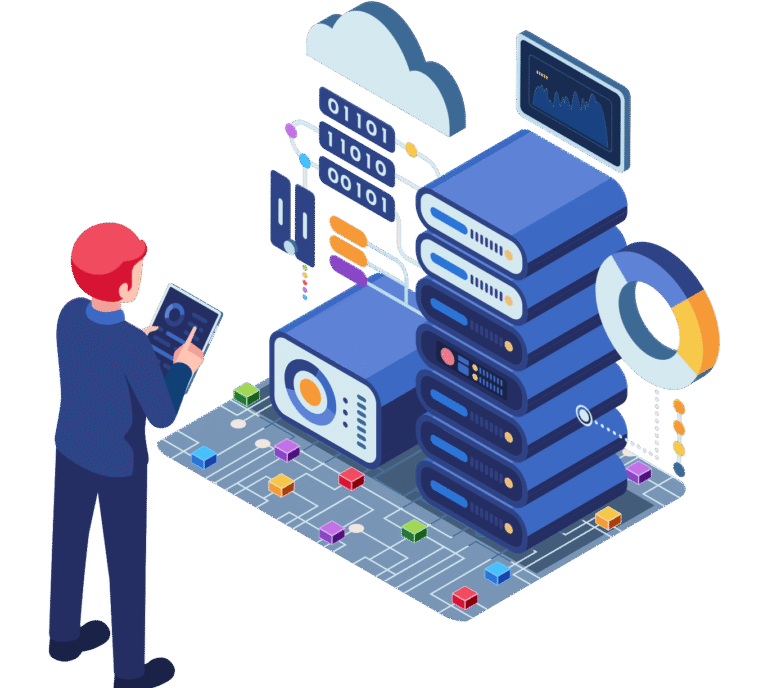
Site Reliability Engineering (SRE)
Ensure reliability, performance, and scalability of your applications with our SRE services. We bring DevOps principles and automation together to deliver resilient systems that run seamlessly in production.
Our Capabilities
Infrastructure Monitoring
Gain real-time visibility into servers, containers, and cloud resources to proactively detect issues before they impact users.
Application Monitoring
Track application performance, uptime, and user experience with advanced observability tools.
Logging & Tracing
Implement centralized logging and distributed tracing to simplify troubleshooting and root cause analysis.
Alerting
Set intelligent, automated alerts to respond quickly to anomalies and ensure uninterrupted service.
Incident Management
Establish clear processes and automated workflows for faster resolution of critical incidents.
Reliability Automation
Automate repetitive tasks like scaling, failover, and recovery to reduce manual intervention and increase system reliability.
Why SRE with DevSecCops.ai
Business Impact We Deliver
Reduce downtime, optimize performance, and scale confidently with SRE-driven automation and observability. Improve user satisfaction and business continuity through proactive reliability.

Proactive Reliability
We prevent downtime before it happens with predictive monitoring and automation.
Scalable Solutions
Our SRE practices scale effortlessly with your growing infrastructure and business demands
Faster Recovery
Automated incident response ensures minimal downtime and maximum availability.
End-to-End Observability
From infrastructure to user experience, we deliver complete observability across your systems.
Trusted By




















FAQ
Call to Action
see how we can accelerate your SRE journey.
Optimize reliability with our SRE experts get started today!
Unifying SRE, automation, and security to keep your systems always-on.
About Us
At DevSecCops.ai, we integrate DevOps, SRE, and security practices to deliver highly available, secure, and cost-efficient systems. Our mission is to keep your infrastructure reliable while you focus on innovation.


Simplify your cloud journey and focus on growth while we deliver secure, scalable, and cost-optimized cloud solutions tailored to your business needs.
FAQs
Top Questions Businesses Ask About SRE services
DevOps blends software development and IT operations to deliver apps faster through teamwork and automation. It uses tools like Jenkins for continuous integration and deployment, ensuring reliable, quick releases. MLOps extends DevOps for machine learning, managing ML models from development to production. It automates data pipelines, model training, and deployment with tools like Kubeflow, while monitoring performance. Both streamline workflows—DevOps for software, MLOps for AI—making updates efficient and scalable.
APM focuses on tracking the performance, availability, and user experience of applications, including response times and error rates, across the entire software stack. Infrastructure monitoring, on the other hand, oversees the underlying hardware, networks, and cloud resources. APM provides deeper insights into application-specific issues, while infrastructure monitoring ensures the foundational systems are healthy.
Logging captures detailed records of system events, errors, and activities, helping teams diagnose issues. Tracing tracks the journey of a request through distributed systems, identifying bottlenecks or failures. Together, they complement metrics to provide a comprehensive view of system health, enabling faster root cause analysis and improved observability.
Effective alerting uses predefined thresholds and real-time data to notify teams of potential issues, such as high CPU usage or application errors, before they escalate. By prioritizing critical alerts and reducing noise, teams can respond quickly, minimizing downtime and ensuring service reliability. Tools like customizable dashboards and automated notifications enhance this process
SRE is a discipline that applies software engineering principles to IT operations to improve system reliability and performance. It integrates with monitoring by defining key metrics (like the four golden signals: latency, errors, saturation, and traffic), automating responses, and using observability tools to proactively manage systems, ensuring high availability and efficient incident response.
